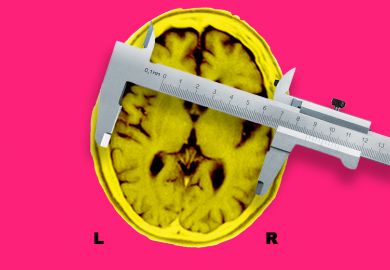The chief executive of France’s leading network of research institutes has faced a huge backlash from scientists after calling for a new law to unleash “Darwinian” competition among academics for funding.
Antoine Petit’s comments appear to have set off an unprecedented row within the French National Centre for Scientific Research (CNRS) ahead of a new research law set to come before the French parliament in February or March.
Writing in Les Echos in November, Professor Petit called for an “ambitious, unequal law – yes, unequal, a virtuous and Darwinian law, which encourages the most efficient scientists, teams, laboratories and establishments on an international scale”.
Some of the CNRS’ top scientists, including the president of its scientific council, responded that the comments had caused “deep disapproval and deep concern” in an open letter released the following month.
“There is complete consensus within the CNRS [against this approach] – except for the head,” said François Massol, a CNRS evolutionary ecologist.
The row has continued into the new year, with a steady stream of public condemnation from French scientists. One geneticist argued in a recent CNRS-n-a-pas-a-propager-d-idees-recues-sur-darwin_1771958">Liberation article that Darwin himself, who preferred “patient reflection away from competitive relentlessness”, would never have had his research supported under the CNRS as envisaged by Professor Petit.
Meanwhile, 29 faculties and 26 labs were reported to be on strike in protest against the proposed changes, and the wider pension reforms that in December brought hundreds of thousands of protesters on to the streets.
One group of researchers, including Dr Massol, have taken aim at what they see as Professor Petit’s misapplication of Darwinism.
“Natural selection operates at the individual level, favouring the characteristics of those who can survive and reproduce, sometimes to the detriment of the group or even the species,” they wrote in a petition in December, which has garnered close to 15,000 signatures and support from 39 academic societies. Instead, they recommend freeing up more research time, better funding and more permanent positions.
Professor Petit has been “misusing science for the sake of science policy”, said Dr Massol.
Speaking to Times Higher Education, Professor Petit acknowledged that if looked at “from a specialist point of view, the use of the Darwin term was not fully appropriate”.
The point was to emphasise that France needs to “attract the best scientists and support the best teams” and that it would be “useless” to distribute money equally across all the country’s research institutions, he said.
“Sometimes in France, we have a problem with equality, we like to have everybody equal,” Professor Petit said. “Science is like sport. Everybody can play soccer, but not everybody can play in the Champions League.”
Critics disagreed. “If you concentrate research money on a few labs or people, you’ll have much more conservative science, which is less exploratory,” said Philippe Huneman, a CNRS research director focusing on evolutionary biology.
Pervasive job insecurity would drive more academics to research fraud, he added.
France’s new research law is yet to be made public. But judging from preliminary discussions, Professor Huneman feared it could make the previously permanent positions of assistant professor and CNRS junior researcher temporary.
Professor Petit said that he would be “very surprised” if the law scrapped tenure for these positions, given the strength of opposition. Instead, it could introduce a new “experimentation” career track for a small proportion of academics, with tenure awarded later than it is now. He also hoped that the new law would come with substantial new funding.
Register to continue
Why register?
- Registration is free and only takes a moment
- Once registered, you can read 3 articles a month
- Sign up for our newsletter
Subscribe
Or subscribe for unlimited access to:
- Unlimited access to news, views, insights & reviews
- Digital editions
- Digital access to THE’s university and college rankings analysis
Already registered or a current subscriber?








